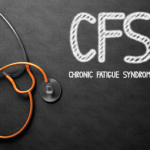On the flip side, Kevin V. Hackshaw, MD, rheumatologist, The Ohio State University Wexner Medical Center, Columbus, Ohio, sees some disadvantages. “There is already a lot of confusion with the frequent back and forth between myalgic encephalomyelitis and CFS,” he says. “Introducing a new term will probably spread the stigmatization to the new term and will do little to add legitimacy to this condition, nor will it relieve stress and anxiety for affected individuals.”
An Action Plan
The committee cautioned that the proposed criteria will not improve patient diagnosis and care unless healthcare providers use them. Therefore, it recommended that the U.S. Department of Health and Human Services develop a toolkit for screening and diagnosing patients with ME/CFS in a wide array of clinical settings.
Dr. Kaplan believes such a toolkit would be valuable. “Most physicians are not very familiar with CFS, and even those who are find the criteria somewhat complex,” he says. “Having a toolkit and algorithm would greatly simplify the diagnosis and management of these patients.”
On the other hand, Dr. Goldenberg says toolkits for syndrome-driven disorders, such as fibromyalgia and CFS, don’t make sense. “As we have done in fibromyalgia, diagnostic guidelines for all common symptom-based illnesses, such as depression, migraine and irritable bowel syndrome, are helpful but very dependent on the clinician’s experience and comfort level in excluding other illnesses.”
More Research Needed
The IOM report also stressed the need for urgent research on ME/CFS, given that between 836,000 and 2.5 million Americans have ME/CFS, and an estimated 84–91% of people with ME/CFS are not diagnosed. Too little is known about the causes, development and progression of the disease, and effective treatment. Future research could lead to findings that refine the diagnostic criteria and understanding of ME/CFS subtypes.
Dr. Lahita agrees that an understanding of CFS is essential. “CFS has ruined many lives and caused many to commit suicide and spend millions on suspect remedies. Patients who have the illness are shunned by many physicians, and they have been stigmatized by family and friends.”
According to Dr. Lahita, the illness does not garner federal money for research efforts, and as a result, patients often enter poor clinical trials and studies where they waste their time and spend needless amounts of money.
Karen Appold is a medical writer in Pennsylvania.
Reference
- Committee on the Diagnostic Criteria for Myalgic Encephalomyelitis/Chronic Fatigue Syndrome, Board on the Health of Select Populations, Institute of Medicine. Beyond myalgic encephalomyelitis/chronic fatigue syndrome: Redefining an illness. Institute of Medicine. Washington, D.C.: National Academies Press, 2015.


